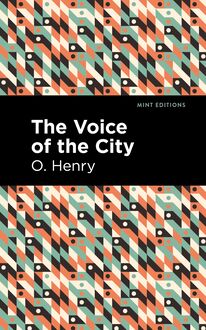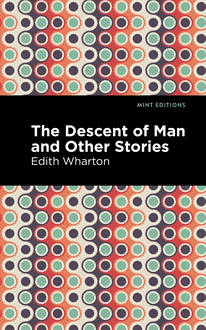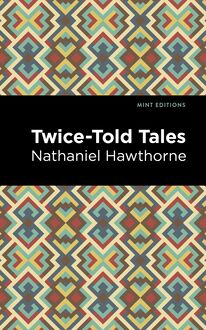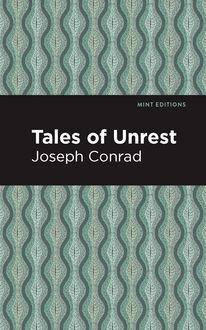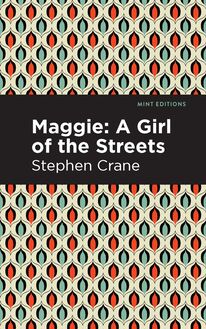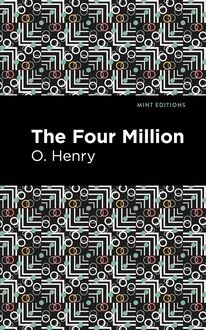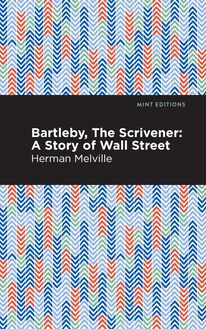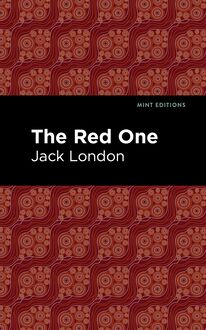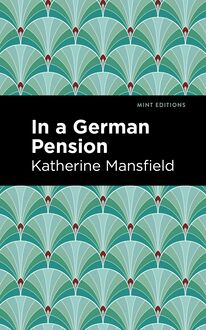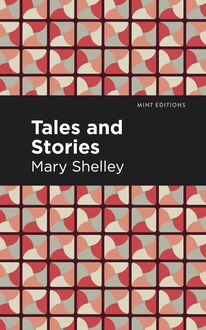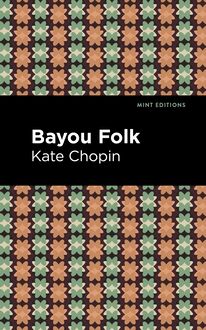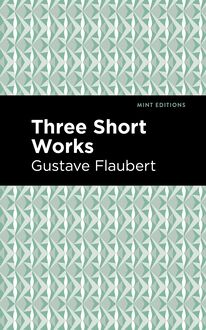-
 Univers
Univers
-
 Ebooks
Ebooks
-
 Livres audio
Livres audio
-
 Presse
Presse
-
 Podcasts
Podcasts
-
 BD
BD
-
 Documents
Documents
-
- Cours
- Révisions
- Ressources pédagogiques
- Sciences de l’éducation
- Manuels scolaires
- Langues
- Travaux de classe
- Annales de BEP
- Etudes supérieures
- Maternelle et primaire
- Fiches de lecture
- Orientation scolaire
- Méthodologie
- Corrigés de devoir
- Annales d’examens et concours
- Annales du bac
- Annales du brevet
- Rapports de stage
La lecture à portée de main
Vous pourrez modifier la taille du texte de cet ouvrage
Découvre YouScribe en t'inscrivant gratuitement
Je m'inscrisDécouvre YouScribe en t'inscrivant gratuitement
Je m'inscrisEn savoir plus
Vous pourrez modifier la taille du texte de cet ouvrage
En savoir plus

Description
With beautiful prose and defined characters, England, My England is a collection of ten works of short fiction written by the provocative and controversial author, D.H Lawrence. Many of these stories are set during and revolve around World War Ⅰ, such as Wintry Peacock. When her husband goes off to war, a woman finds herself moving in with her in-laws as she eagerly waits for his return. Around the time he is meant to come home, a letter arrives for him, written in French. Sent by the husband’s mistress, the letter details the affair he had, and that the mistress was with child because of it. Though the letter also warned of the mistress’s plans to move to England with her baby to be with the husband, the wife was unable to translate the French, leading to a situation of unfortunate misdirect and miscommunication. Other stories among this collection focus on the unfair societal expectations of women. You Touched Me follows the story of an adopted son and dying patriarch blackmailing an eldest daughter into marrying the son. Samson and Delilah depicts the complicated reunion of a husband and wife after the husband had abandoned his wife and newborn child fifteen years prior. Fannie and Annie excellently portrays the societal pressure for women to settle for less as it depicts Fannie, a well-educated woman, returning to her hometown to marry an unmotivated man who has illicit affairs with other women. Exploring the opposite perspective of a similar situation, The Primrose Path inspects the consequences of a man who lives a fleeting lifestyle—jumping from place to place, job to job, and woman to woman. Features themes of love, feminism, and sexuality, D.H Lawrence explores complicated relationships during the 20th century amid a world war and unjust and harmful social expectations. England, My England explores issues of society with a dark and biting tone, creating narratives that are not easily forgotten, and relate to ever-present human struggles. This edition of England, My England by D.H Lawrence features a new eye-catching cover design and is printed in a font that is both modern and readable to cater to a contemporary audience.
Sujets
Informations
| Publié par | Mint Editions |
| Date de parution | 07 mai 2021 |
| Nombre de lectures | 0 |
| EAN13 | 9781513275512 |
| Langue | English |
| Poids de l'ouvrage | 3 Mo |
Informations légales : prix de location à la page 0,0500€. Cette information est donnée uniquement à titre indicatif conformément à la législation en vigueur.
Extrait
England, My England
D.H. Lawrence
England, My England was first published in 1922.
This edition published by Mint Editions 2021.
ISBN 9781513270517 | E-ISBN 9781513275512
Published by Mint Editions®
minteditionbooks.com
Publishing Director: Jennifer Newens
Design & Production: Rachel Lopez Metzger
Typesetting: Westchester Publishing Services
C ONTENTS E NGLAND , M Y E NGLAND T ICKETS , P LEASE T HE B LIND M AN M ONKEY N UTS W INTRY P EACOCK Y OU T OUCHED M E S AMSON AND D ELILAH T HE P RIMROSE P ATH T HE H ORSE D EALER ’ S D AUGHTER F ANNY AND A NNIE
E NGLAND , M Y E NGLAND
He was working on the edge of the common, beyond the small brook that ran in the dip at the bottom of the garden, carrying the garden path in continuation from the plank bridge on to the common. He had cut the rough turf and bracken, leaving the grey, dryish soil bare. But he was worried because he could not get the path straight, there was a pleat between his brows. He had set up his sticks, and taken the sights between the big pine trees, but for some reason everything seemed wrong. He looked again, straining his keen blue eyes, that had a touch of the Viking in them, through the shadowy pine trees as through a doorway, at the green-grassed garden-path rising from the shadow of alders by the log bridge up to the sunlit flowers. Tall white and purple columbines, and the butt-end of the old Hampshire cottage that crouched near the earth amid flowers, blossoming in the bit of shaggy wildness round about.
There was a sound of children’s voices calling and talking: high, childish, girlish voices, slightly didactic and tinged with domineering: “If you don’t come quick, nurse, I shall run out there to where there are snakes.” And nobody had the sang-froid to reply: “Run then, little fool.” It was always, “No, darling. Very well, darling. In a moment, darling. Darling, you must be patient.”
His heart was hard with disillusion: a continual gnawing and resistance. But he worked on. What was there to do but submit!
The sunlight blazed down upon the earth, there was a vividness of flamy vegetation, of fierce seclusion amid the savage peace of the commons. Strange how the savage England lingers in patches: as here, amid these shaggy gorse commons, and marshy, snake infested places near the foot of the south downs. The spirit of place lingering on primeval, as when the Saxons came, so long ago.
Ah, how he had loved it! The green garden path, the tufts of flowers, purple and white columbines, and great oriental red poppies with their black chaps and mulleins tall and yellow, this flamy garden which had been a garden for a thousand years, scooped out in the little hollow among the snake-infested commons. He had made it flame with flowers, in a sun cup under its hedges and trees. So old, so old a place! And yet he had re-created it.
The timbered cottage with its sloping, cloak-like roof was old and forgotten. It belonged to the old England of hamlets and yeomen. Lost all alone on the edge of the common, at the end of a wide, grassy, briar-entangled lane shaded with oak, it had never known the world of today. Not till Egbert came with his bride. And he had come to fill it with flowers.
The house was ancient and very uncomfortable. But he did not want to alter it. Ah, marvellous to sit there in the wide, black, time-old chimney, at night when the wind roared overhead, and the wood which he had chopped himself sputtered on the hearth! Himself on one side the angle, and Winifred on the other.
Ah, how he had wanted her: Winifred! She was young and beautiful and strong with life, like a flame in sunshine. She moved with a slow grace of energy like a blossoming, red-flowered bush in motion. She, too, seemed to come out of the old England, ruddy, strong, with a certain crude, passionate quiescence and a hawthorn robustness. And he, he was tall and slim and agile, like an English archer with his long supple legs and fine movements. Her hair was nut-brown and all in energic curls and tendrils. Her eyes were nut-brown, too, like a robin’s for brightness. And he was white-skinned with fine, silky hair that had darkened from fair, and a slightly arched nose of an old country family. They were a beautiful couple.
The house was Winifred’s. Her father was a man of energy, too. He had come from the north poor. Now he was moderately rich. He had bought this fair stretch of inexpensive land, down in Hampshire. Not far from the tiny church of the almost extinct hamlet stood his own house, a commodious old farmhouse standing back from the road across a bare grassed yard. On one side of this quadrangle was the long, long barn or shed which he had made into a cottage for his youngest daughter Priscilla. One saw little blue-and-white check curtains at the long windows, and inside, overhead, the grand old timbers of the high-pitched shed. This was Prissy’s house. Fifty yards away was the pretty little new cottage which he had built for his daughter Magdalen, with the vegetable garden stretching away to the oak copse. And then away beyond the lawns and rose trees of the house-garden went the track across a shaggy, wild grass space, towards the ridge of tall black pines that grew on a dyke-bank, through the pines and above the sloping little bog, under the wide, desolate oak trees, till there was Winifred’s cottage crouching unexpectedly in front, so much alone, and so primitive.
It was Winifred’s own house, and the gardens and the bit of common and the boggy slope were hers: her tiny domain. She had married just at the time when her father had bought the estate, about ten years before the war, so she had been able to come to Egbert with this for a marriage portion. And who was more delighted, he or she, it would be hard to say. She was only twenty at the time, and he was only twenty-one. He had about a hundred and fifty pounds a year of his own—and nothing else but his very considerable personal attractions. He had no profession: he earned nothing. But he talked of literature and music, he had a passion for old folk-music, collecting folk-songs and folk-dances, studying the Morris-dance and the old customs. Of course in time he would make money in these ways.
Meanwhile youth and health and passion and promise. Winifred’s father was always generous: but still, he was a man from the north with a hard head and a hard skin too, having received a good many knocks. At home he kept the hard head out of sight, and played at poetry and romance with his literary wife and his sturdy, passionate girls. He was a man of courage, not given to complaining, bearing his burdens by himself. No, he did not let the world intrude far into his home. He had a delicate, sensitive wife whose poetry won some fame in the narrow world of letters. He himself, with his tough old barbarian fighting spirit, had an almost child-like delight in verse, in sweet poetry, and in the delightful game of a cultured home. His blood was strong even to coarseness. But that only made the home more vigorous, more robust and Christmassy. There was always a touch of Christmas about him, now he was well off. If there was poetry after dinner, there were also chocolates and nuts, and good little out-of-the-way things to be munching.
Well then, into this family came Egbert. He was made of quite a different paste. The girls and the father were strong-limbed, thick-blooded people, true English, as holly-trees and hawthorn are English. Their culture was grafted on to them, as one might perhaps graft a common pink rose on to a thornstem. It flowered oddly enough, but it did not alter their blood.
And Egbert was a born rose. The age-long breeding had left him with a delightful spontaneous passion. He was not clever, nor even “literary.” No, but the intonation of his voice, and the movement of his supple, handsome body, and the fine texture of his flesh and his hair, the slight arch of his nose, the quickness of his blue eyes would easily take the place of poetry. Winifred loved him, loved him, this southerner, as a higher being. A higher being, mind you. Not a deeper. And as for him, he loved her in passion with every fibre of him. She was the very warm stuff of life to him.
Wonderful then, those days at Crockham Cottage, the first days, all alone save for the woman who came to work in the mornings. Marvellous days, when she had all his tall, supple, fine-fleshed youth to herself, for herself, and he had her like a ruddy fire into which he could cast himself for rejuvenation. Ah, that it might never end, this passion, this marriage! The flame of their two bodies burnt again into that old cottage, that was haunted already by so much by-gone, physical desire. You could not be in the dark room for an hour without the influences coming over you. The hot blood-desire of by-gone yeomen, there in this old den where they had lusted and bred for so many generations. The silent house, dark, with thick, timbered walls and the big black chimney-place, and the sense of secrecy. Dark, with low, little windows, sunk into the earth. Dark, like a lair where strong beasts had lurked and mated, lonely at night and lonely by day, left to themselves and their own intensity for so many generations. It seemed to cast a spell on the two young people. They became different. There was a curious secret glow about them, a certain slumbering flame hard to understand, that enveloped them both. They too felt that they did not belong to the London world any more. Crockham had changed their blood: the sense of the snakes that lived and slept even in their own garden, in the sun, so that he, going forward with the spade, would see a curious coiled brownish pile on the black soil, which suddenly would start up, hiss, and dazzle rapidly away, hissing. One day Winifre
-
 Univers
Univers
-
 Ebooks
Ebooks
-
 Livres audio
Livres audio
-
 Presse
Presse
-
 Podcasts
Podcasts
-
 BD
BD
-
 Documents
Documents
-
Jeunesse
-
Littérature
-
Ressources professionnelles
-
Santé et bien-être
-
Savoirs
-
Education
-
Loisirs et hobbies
-
Art, musique et cinéma
-
Actualité et débat de société
-
Jeunesse
-
Littérature
-
Ressources professionnelles
-
Santé et bien-être
-
Savoirs
-
Education
-
Loisirs et hobbies
-
Art, musique et cinéma
-
Actualité et débat de société
-
Actualités
-
Lifestyle
-
Presse jeunesse
-
Presse professionnelle
-
Pratique
-
Presse sportive
-
Presse internationale
-
Culture & Médias
-
Action et Aventures
-
Science-fiction et Fantasy
-
Société
-
Jeunesse
-
Littérature
-
Ressources professionnelles
-
Santé et bien-être
-
Savoirs
-
Education
-
Loisirs et hobbies
-
Art, musique et cinéma
-
Actualité et débat de société
- Cours
- Révisions
- Ressources pédagogiques
- Sciences de l’éducation
- Manuels scolaires
- Langues
- Travaux de classe
- Annales de BEP
- Etudes supérieures
- Maternelle et primaire
- Fiches de lecture
- Orientation scolaire
- Méthodologie
- Corrigés de devoir
- Annales d’examens et concours
- Annales du bac
- Annales du brevet
- Rapports de stage
